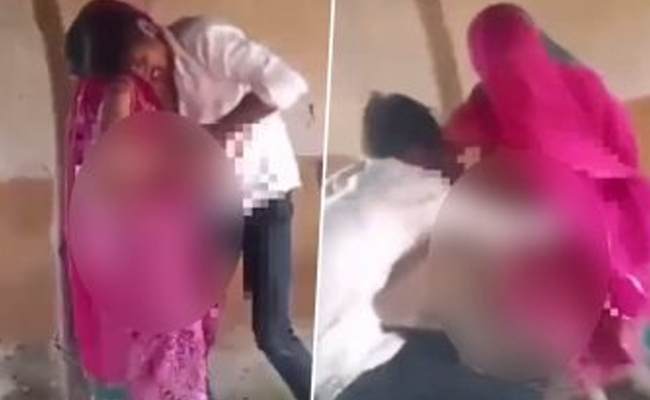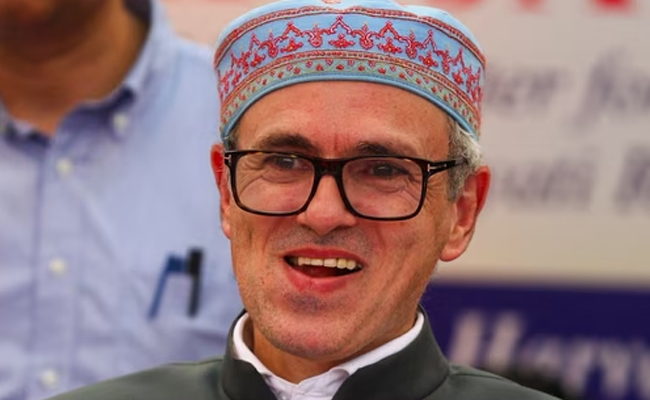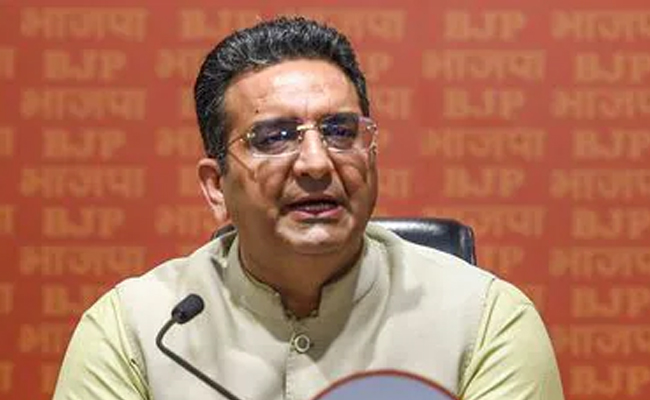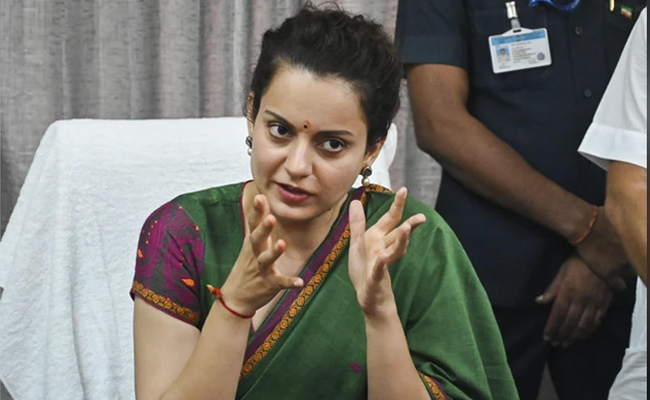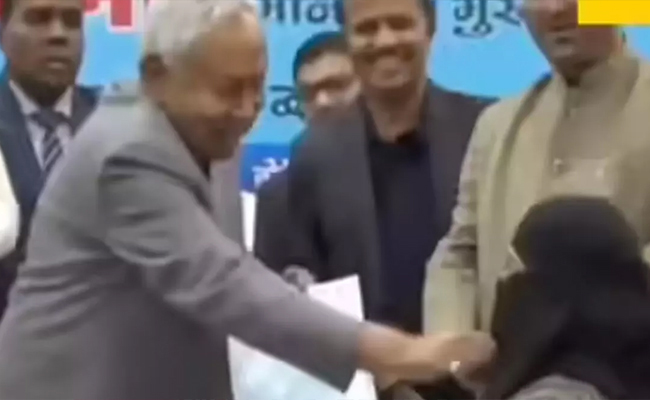Jaipur (PTI): Eight people, including the husband of a 21-year-old tribal woman who was allegedly stripped naked and paraded in a village in Rajasthan's Pratapgarh district, have been detained, police said on Saturday.
The incident, caught on camera, was widely criticised by various political leaders.
In a statement, DGP Umesh Mishra said 10 people have been named in the FIR for molestation, thrashing the woman besides other relevant sections. Of these, eight, including the main accused, have been detained, it said.
He said the victim lodged a complaint against her husband Kanha Gameti along with Suraj, Beniya, Netiya, Nathu and Mahendra for forcibly taking her on a motorcycle and parading her naked.
"The main accused Kanha, Netiya, Beniya and Pintu and a minor have been detained apart from spectators of the crime Punia, Khetia and Motilal," the police statement said.
Police also said that Kanha, Netiya and Benia got injured while trying to flee and are being treated at Pratapgarh district hospital.
"The search for the remaining accused is on. Additional force has been deployed for maintaining peace and law and order," the statement stated.
Initial investigation revealed that the woman was in a relationship with another man, said Dhariyawad SHO Peshawar Khan.
Police said the in-laws of the woman kidnapped her and took her to their village where the incident took place on Thursday. Her in-laws were annoyed as she was staying with another man.
They also said that six teams have been formed to arrest the accused and Pratapgarh Superintendent of Police Amit Kumar is camping in the village.
On the direction of Chief Minister Ashok Gehlot, DGP Mishra sent ADG (Crime) Dinesh M N to Pratapgarh Friday night.
Gehlot took cognisance of the incident and posted on X, "Such incidents have no place in a civilised society." He said the accused will be arrested soon and tried in a fast-track court.
Former chief minister Vasundhara Raje alleged that the video of a pregnant woman being stripped in front of people was doing rounds on social media, but the administration was not aware of it. She also appealed to people to not share the video, saying the incident has put Rajasthan to shame.
Let the Truth be known. If you read VB and like VB, please be a VB Supporter and Help us deliver the Truth to one and all.
Srinagar (PTI): Jammu and Kashmir Chief Minister Omar Abdullah on Wednesday criticised his Bihar counterpart over the niqab incident and said that Nitish Kumar might be slowly revealing his true nature.
"Nitish Kumar, who was once considered a secular leader, may be slowly showing his true colours," Abdullah told reporters here on the sidelines of a function.
Abdullah said Kumar removing the face veil of a Muslim woman doctor was wrong and cannot be justified by any means.
"We have seen this kind of incident here several years ago. Have you forgotten how Mehbooba Mufti removed the burqa of a legitimate voter inside a polling station? That act was wrong, and this act (of Kumar) is also wrong.
"If the (Bihar) chief minister did not want to hand over the order to her (Muslim woman), they could have kept her aside. However, to humiliate her like this is totally wrong," the Jammu and Kashmir chief minister said.
Kumar stirred a huge controversy after he removed the face veil of a Muslim woman at a function earlier this week.

